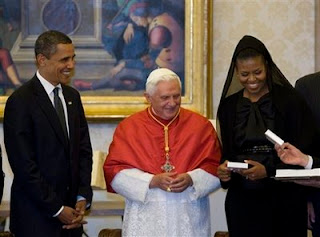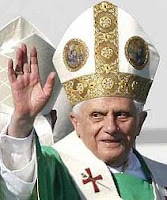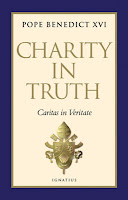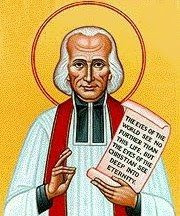
When Obama Met the Pope The Vatican described the half hour meeting between Benedict XVI and President Obama as cordial. The two leaders discussed a range of issues on which there was general agreement; i.e. bringing peace to the Middle East, protecting the rights of minorities there, including Christians, immigration reform that respects the dignity of immigrants, promoting a responsible environmentalism, a humane global economy, and more. The Pope also presented Mr. Obama with a statement on bioethics addressed to the American Church where life issues – a fundamental Catholic concern – have been under assault recently. The actions of the Obama administration in the areas of abortion, euthanasia, redefining the institution of marriage, embryonic stem cell research, and the ability of health care providers to exercises their consciences regarding procedures they are morally opposed to – are cause for concern. Benedict challenged Obama to go beyond the President’s oft repeated “com



